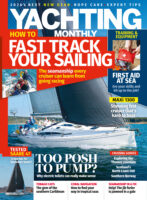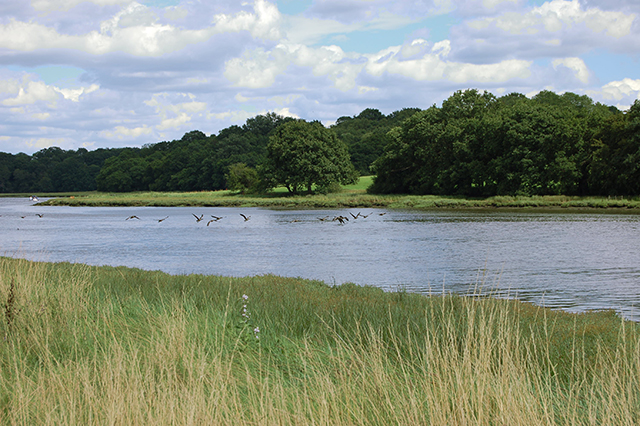This enchanting creek on the Isle of Wight is a must-visit for nature lovers, says Peter Bruce
King’s Quay Creek is a delightful tiny drying inlet on the Isle of Wight between Wootton Creek and Osborne Bay.
There is some uncertainty as to which monarch gave rise to its title, though King John seems the most likely.
It is certain that Charles I landed here in 1647 but by then, the name was established.
There is no quay anymore, but before silting up, King’s Quay Creek is thought to have been a small port.
Not many mariners bother to stop here now and if they do, access by small boat is only possible at high water.
The creek is a Site of Special Scientific Interest (SSSI) and a Ramsar-designated site which hosts a variety of species, including birds, which should not be disturbed.
Sadly, people have not paid heed to this and a recent Wetland Bird Survey (WeBS) count has revealed a 54% decrease in the number of ringed plover, resulting in the birds being put on a ‘high alert’ status by WeBS.
There are no buildings in sight as you approach by dinghy towards the foliage-covered marshland surrounded by trees, called Curlews Copse and Steps Copse, which grows densely on either side.
Continues below…
The unspoilt River Yar
Peter Bruce finds peace and tranquility as he meanders up Yarmouth’s pretty waterway
Exploring the hidden Hamble
Peter Bruce discovers the rich heritage of the Hamble as he winds his way upriver
It is easy to see the way through the shingle banks, though you should bear in mind the variation in the offshore channels showing upon aerial photographs and be alert to further changes.
Follow the passage between the marshland through what is called the Gutter and you will soon come to an old causeway which, where it has collapsed in part, has been replaced with a wooden barrage across the channel.
The area beyond the causeway is private so this is as far as boats should go, but you can sit back and enjoy the tranquility of this special place.
Having once been to the diminutive King’s Quay Creek, nature lovers will not forget its soft beauty and splendid isolation, and may well want to return.






